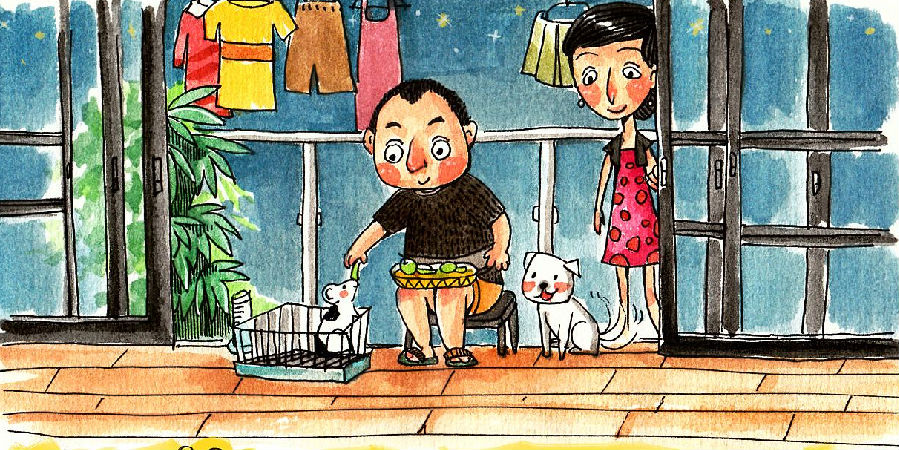Now, the VOA Learning English program Words and Their Stories.
On this program we explore the origins and uses of common words and expressions in American English.
Today we talk about a word that is a feeling as well as a place. That word is "home."
Long ago in the 1700s, "home" was used as a verb, meaning "to be guided to a destination." So, when you home in on something you get closer to your target. For example, you could say, "Police are homing in on the suspects."
That is also where we get homing pigeons -- pigeons that can find their way home after being released.

But today, "home" is more often used as a noun. And it has a very emotional connection for American English speakers. You can remember the meaning of the word by the expression "home is where the heart is."
That expression means home is anywhere you feel love and comfort. It is a place where you belong, and often a place you consider your origin.
You can also simply the carry of feeling of home with you -- that is, a feeling of love and loyalty to your family and places that are dear to you.
In other words, "home" is not simply a building where you live -- that's a house. There is a big difference between a house and a home. Writer Lord Byron expressed this thought in his long poem Don Juan.
He enter'd in the house - his home no more,
For without hearts there is no home; and felt
The solitude of passing his own door
Without a welcome
Simply said, a house is not a home.
Another writer, Thomas Wolfe, had a different idea about home. In 1940, his book "You Can't Go Home Again" was published. This title has worked its way into the English language. We use it to mean that the ideas and feelings you had as a child often change when you are an adult. So, even if you return to the place where you grew up, time and distance have changed your perspective. You may not be able to re-create even your closest relationships.
Rock-n-roll singer Jon Bon Jovi does not agree with this expression. In this song he and Jennifer Nettles sing "Who Says You Can't Go Home." What they mean is yes, they can go back to a childhood home and be perfectly happy. This is especially true if you've become successful and have made a lot of money.
Some people find that returning to a childhood place brings only joy and delight. When these people return to their childhood homes, they may say "Home Sweet Home!"
Of course, you can say this anywhere. A single woman living alone in her first apartment may come home after a tough day at work and sigh, "Ah, home sweet home!" If she loves her apartment she might also say: "There's no place like home."
There's no place like home is a famous line repeated over and over by the character of Dorothy in the classic American film "The Wizard of Oz."
She learns that she did not need to leave her home in order to find what she was seeking. Dorothy's adventures ended right back in Kansas, where she was from.
But what about those people who must stay away from their homes for a long time? They still want to feel connected to a place they can depend on.
Hotels know this about travelers. Many advertise that they will be a home away from home. This expression describes a place where everything is familiar and comfortable.
Friends can also give you a home away from home. When you visit them, they may say to you: "Make yourself at home!"
This common expression means someone wants you to feel relaxed and welcome.
However, let's say you make yourself too at home. You eat everything in the refrigerator! Your friend then may say, "I'm happy to have you stay, but please don't eat me out of house and home!"
Sometimes, when we travel for a long time -- especially if we are in a strange place -- we can begin to feel sad. We miss our friends, family and usual environment so much that we become homesick.
Some people become so unsettled when they are away from home that they quit leaving the house altogether. They become homebodies. A homebody usually prefers to do things quietly around the house -- such as cook or knit or sit by the fire reading a book. For a homebody, going out night after night or visiting a busy city for a long period of time would be a nightmare.
But you don't have to be a homebody to relax and enjoy a peaceful moment -- no matter where you are. For example, let's say you have been working on a stressful assignment for a year. Now, the work is almost done. You can say you are in the home stretch.
This expression comes from horse racing. Horses in the home stretch are near the finish line. So, if you are in the home stretch of a very long project, you are almost finished.
In fact, we are in the home stretch of this episode of Words and Their Stories. We are at the last paragraph. So, we bring us on home with another song about home. That is something musicians say when they are finishing a performance.
I'm Anna Matteo.












